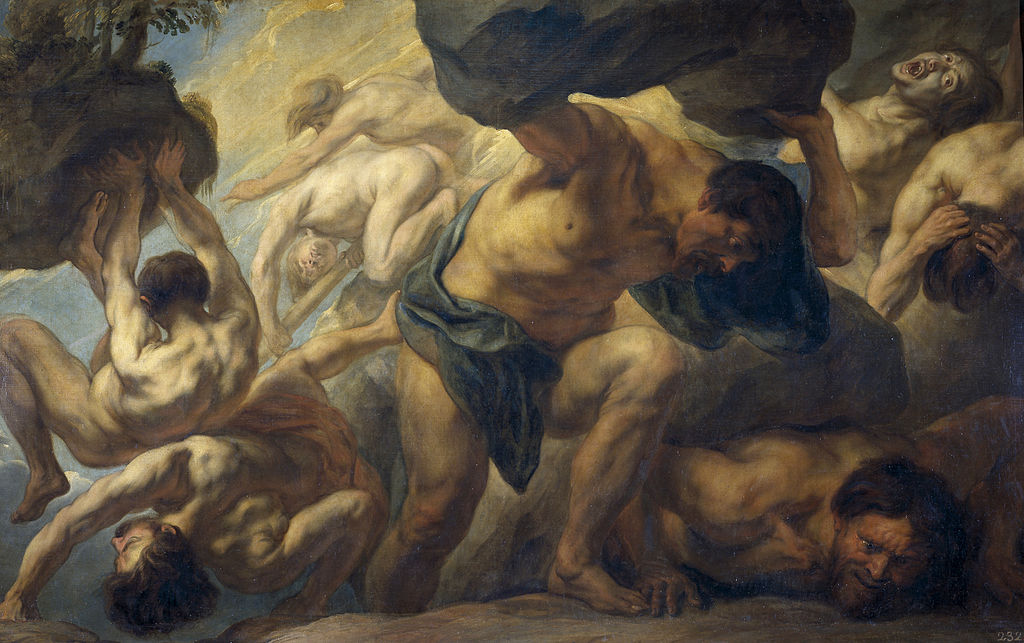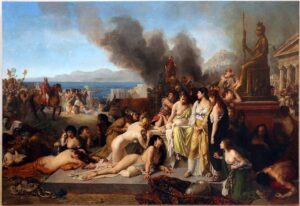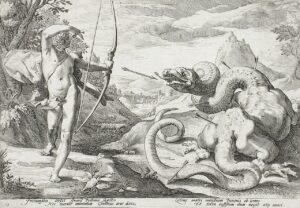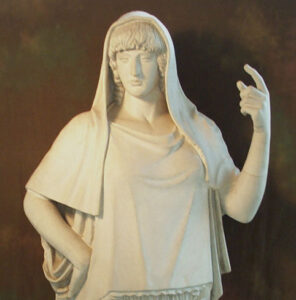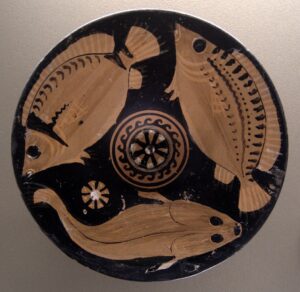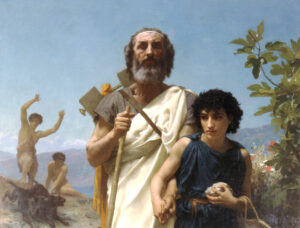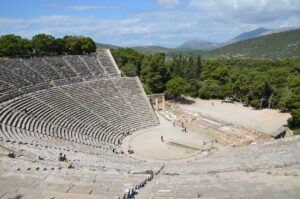The Titans of ancient Greece were a race of powerful gods and goddesses that came before the twelve Olympians in ancient Greek religion and mythology. The Titans were the children of the primordial deities Uranus (sky) and Gaia (earth) and were considered to be the elder gods. The Titans ruled the world during the Golden Age, but were eventually overthrown by their children, the Olympians, led by Zeus.
Origins of the Titans
As stated above, the Titans of ancient Greece were born from the union of Uranus and Gaia. According to ancient Greek mythology, they were the first gods to rule over the world, and they were known for their immense strength and power. Uranus and Gaia had twelve children, which became known as the ‘Titans’. These children included six boys and six girls. The Titans of ancient Greece ruled the world with an iron fist, and they were not known for their kindness. Instead, their reign was marked by cruelty and violence, and they were feared by all who lived under their rule.
Who were the Titans of Ancient Greece?
The Titans of ancient Greece were important figures in Greek mythology, as they represented the forces of nature and the primal aspects of the world. They were also associated with the creation and governance of the world. The most well-known Titans include Cronus, the leader of the Titans, who was later overthrown by his son Zeus; and Prometheus, the Titan who gave fire to mankind.
The original twelve Titans of ancient Greek mythology, which were the children of Uranus and Gaia were:
- Cronus – the leader of the Titans, who was overthrown by his son Zeus.
- Rhea – the wife of Cronus and the mother of Zeus, Poseidon, Hades, Hera, Demeter, and Hestia.
- Oceanus – the god of the ocean and the river that encircles the world.
- Tethys – the wife of Oceanus and the goddess of the sources of fresh water.
- Hyperion – the god of light and the father of Helios (the sun), Selene (the moon), and Eos (the dawn).
- Theia – the wife of Hyperion and the goddess of sight and shining light.
- Coeus – the god of intelligence and wisdom.
- Phoebe – the wife of Coeus and the goddess of prophecy.
- Mnemosyne – the goddess of memory and mother of the Muses.
- Themis – the goddess of divine law and order.
- Crius – the Titan god of the heavenly constellations and the father of Astraeus and Pallas.
- Iapetus – the god of mortality.
Other important Titans of ancient Greece included:
- Astraeus – the Titan god of the stars and the father of the winds and the seasons.
- Atlas – the god who carried the weight of the celestial spheres on his shoulders.
- Epimetheus – the Titan who was known for his rashness and was the husband of Pandora.
- Eos – the Titan goddess of the dawn.
- Helios – the Titan god of the sun.
- Pallas – the Titan god of warfare and the father of Athena.
- Perses – the Titan god of destruction and the father of Hecate.
- Prometheus – the Titan who gave fire to mankind and was punished by Zeus for his rebellion.
- Selene – the Titan goddess of the moon.
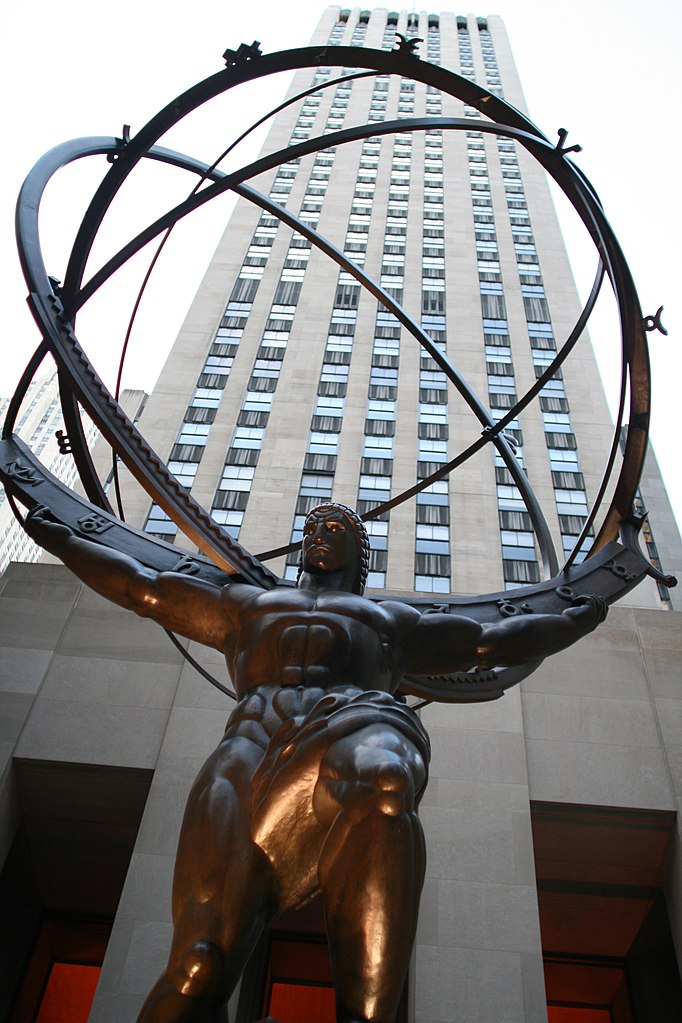
Fall of the Titans of Ancient Greece
The most notable event in the history of the Titans of ancient Greece was the ‘Titanomachy’, which was a ten-year war between the Titans and the Olympians. The battle between the Titans and the Olympian gods was long and brutal, but in the end, the Olympic gods emerged victorious. The Olympians, led by Zeus, banished the Titans to the underworld, Tartarus. In fact, the Titans were sent there as punishment for their previous cruelty.
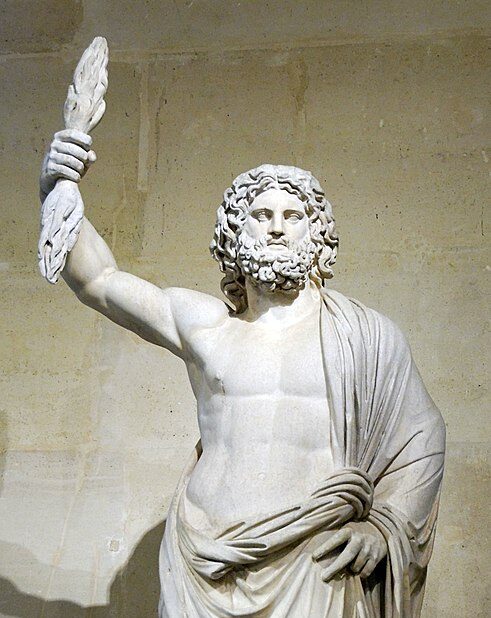
Significance of the Titans of Ancient Greece
The Titans played a significant role in shaping the world of ancient Greece and ancient Greek culture. The myths and stories of the Tians were passed down from generation to generation and impacted the lives of Greek people in terms of ancient Greek mythology and religion. Also, the Titans symbolized the struggle between good and evil, and they served as a cautionary tale of the dangers of unchecked power and ambition.

